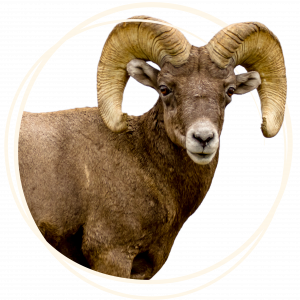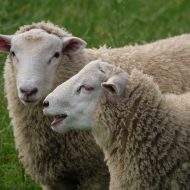Q-Fever
Q Fever is caused by a bacteria that can be found in goats, sheep, cattle, and wildlife such as bighorn sheep and mountain goats.
Overview
How can I get sick?
- By breathing in dust of contaminated poop, pee, milk, or dried birthing fluids.
- Direct contact with an infected* animal and its secretions.
- Eating or drinking contaminated unpasteurized (raw, straight from the animal) milk products.
Symptoms in humans:
- Fever (when your body gets a little hotter than normal)

- Chills (feeling of being cold and shivering)
- Sweats
- Tiredness
- Headache
- Muscle pain
- Feeling like you need to throw up
- Throwing up
- Diarrhea (runny poop)
- Chest Pain
- Weight loss
- Dry cough
Symptoms in animals:
Most animals will not show any signs or symptoms but can still spread the bacteria.
The main symptom that can be seen in pregnant animals:
- Abortion (loss of baby)
- Infertility (difficulty having baby)
- Stillbirth*
- Mastitis*
- Metritis*
What can I do to stay healthy?
- Do not eat or drink raw milk or any raw milk products.
- Avoid contact with animal birthing fluids such as placenta*.
- If you are helping an animal give birth, make sure to protect yourself by wearing gloves, a mask, and gown.
- Avoid contact with animals that are infected*, but this can be difficult as most animals might not show signs of illness. Avoid areas where potentially infected* animals are kept.
*Definitions:
- Infected: When germs get inside of a body, animal, or an organism.
- Mastitis: Swelling in the breast, which is usually caused by an infection.
- Metritis: Swelling of the uterus.
- Placenta: Temporary body part that forms during pregnancy.
- Stillbirth: Death of a baby before or during childbirth.
Species Affected

Learn About Other Diseases
Click below to learn more about the many different diseases that can spread between animals and humans.
Diseases



